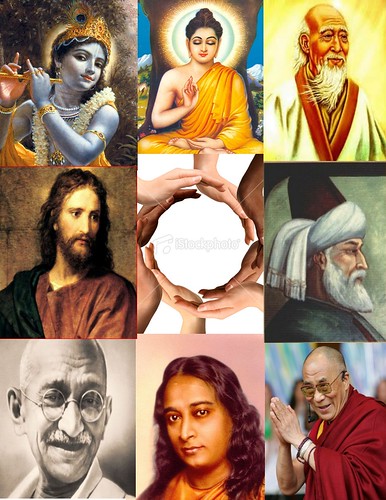Could not disagree more. Not all of us long for god or have god shaped holes in our hearts nor are we all trying to get back home to god. You should clarify that that's what it is for YOU. Because its most certainly not the case for a great many of us.
Billy,
You were paraphrasing St. Augustine there - are you sure you're not a closet Christian?! : - ) (Just kidding).
Obviously, I do not mind if you disagree with me (and even if I did, it wouldn't matter, would it?) because that is how we come to the truth - through amiable dialogue and disagreements and, ultimately, that is really what all of us want, to live our lives founded on truth, right? I mean, who wants to die and realize their whole life was built on a lie or a false perception? So, yes, disagreement can be good and help if we are truly searching for truth.
So, was I wrong to say ALL of humanity was searching for God? Maybe. Maybe I should have said that human history is filled with religion and most people search for meaning, purpose, truth and reality in this life...maybe that would have been more accurate.
However you would like to word it, it is fair to say that the history of humanity is filled with religion much, much more than the absence of it. Every ancient culture and civilization was very religious - even ancient Rome. Whether is was the Druids or the pagan mystery religions of the middle east, humanity has been marked by a deep and consistent religious bent - why? Humans, by and large, DO have a certain draw to things spiritual and that is because they ARE spiritual at there core.
Maybe I should not make such sweeping generalizations but the human art of language is filled with that and we intuitively understand it. For example, when hurricane Katrina hit New Orleans the Nightly news reported that New Orleans was "devastated". Now, I ask you - was ALL of New Orleans devastated or just significant parts of it? Obviously, not all of it was but enough of it was to be able to say that "New Orleans was devastated". So, when I say, "Humanity" I mean "by and large" and, of course, there are always exceptions to the standard.
Anyway, what you pointed out was good but I do think history does show a religious bend within humanity more than it does otherwise. Think through the 10,000 plus years of history and you will see that it is littered with religious ceremony, customs and values (and I am not just referring to monotheistic religions either but think of the Druids, Isis, Baal worship, etc...).
OK, I got to start dinner here (spaghetti with meat balls). I hope that clarifies it some. You are right in saying my generalizations do not apply to everyone without exception - I agree with you on that but I still do maintain that, by and large, history shows humans, the vast majority of them, do tend to have a desire to connect with the Eternal One or the spiritual realm, however they perceive or understand that.




